Getting to know AFL commentator Dennis Cometti
DENNIS Cometti may be hanging up the microphone at AFL season’s end but there’s so much so many don’t know about the legendary commentator. Until now.
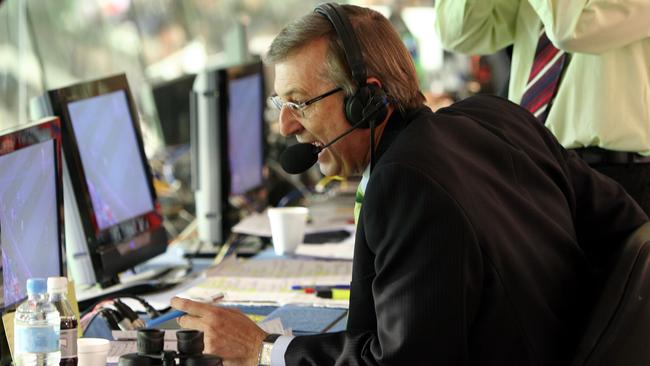
VIC News
Don't miss out on the headlines from VIC News. Followed categories will be added to My News.
- Dennis Cometti announces he will hang up the microphone
- Centimetre perfect: A look back at Dennis Cometti’s best lines
A PHONE rings in the record library of Perth rock station 6KY in May 1972, and a long-haired wannabe disc jockey, complete with the obligatory sideburns and nasty flares, reaches to answer it.
On the Melbourne end is Ian Major, a leading football caller with 6KY’s Melbourne sister station, 3KZ. In Perth is 22-year-old Dennis Cometti, ever-polite and also ambitious enough to put his name forward when Major asks for a calling partner at the forthcoming interstate carnival in Perth.
Cometti’s football calling experience is limited, in fact zilch. But what Major, who has never heard of Cometti, is offering presents a chance for a young man who everyone thinks has a natural radio voice and one who has played 40 games as a tall forward for West Perth, plus some reserves matches with Footscray in the VFL when working with 3DB in 1971.
“I did explain to Ian Major that we weren’t a football station but I told him I had played a bit of footy and was happy to give it a go,” said Cometti this week on announcing his impending retirement from the microphone at season’s end.
“I figure even if I stuffed it up it would only be heard in Melbourne, so what did I have to lose? Suddenly I was calling names like Moss, Cable, Brown, McAullay and Young for WA, and Jesaulenko, Matthews, Knights, Thompson, Greig, Southby and Dempsey for Victoria on this hot, windy day at Subiaco Oval and I was alongside a great caller who was extremely generous to me in terms of airtime.”
It was a culture shock for a young lad who had a day earlier been introducing Deep Purple’s Highway Star and Mama Weer All Crazee Now by Slade. But it was the moment his life changed, and his voice and often-rehearsed but generally amusing one-liners became part of Australia’s winter sporting religion.
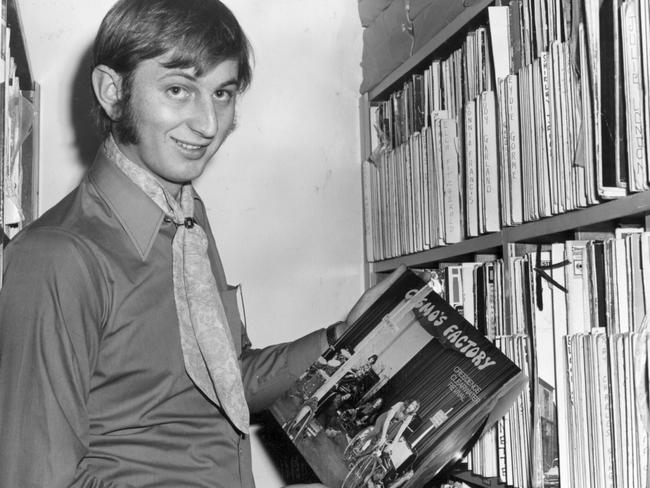
Cometti, 66, a handy enough footballer who once had seven goals to halftime in a 1967 WAFL game for the West Perth Falcons (known until 1975 as the Cardinals) against the Claremont Tigers, has gone on to become as recognisable in his chosen sport of AFL as Alan McGilvray to cricket, Bill Collins to horse racing or even screaming Darrell Eastlake to weightlifting.
You notice McGilvray, who was the doyen of ABC cricket on radio from the 1930s to the 1980s, is mentioned here rather than Richie Benaud, and that is because Cometti has only ever felt intimidated or nervous in a commentary box with one person.
“Cricket’s position in radio then was far greater than today for obvious reasons. Prime ministers would enter the box to be interviewed by Alan McGilvray. But I didn’t find that as daunting as working with Richie,” Cometti said.
“There was just something about Richie. He had this aura. He was generous to work with and friendly off air, but I certainly didn’t take any liberties when I broadcast the cricket with him on 2UE.
“There was no point in offering a theory given who you were working with. In fact, I dreaded having an opinion contrary to his, because all of Australia would side with him regardless of whether I was right. There hasn’t been anyone like him in my time.”
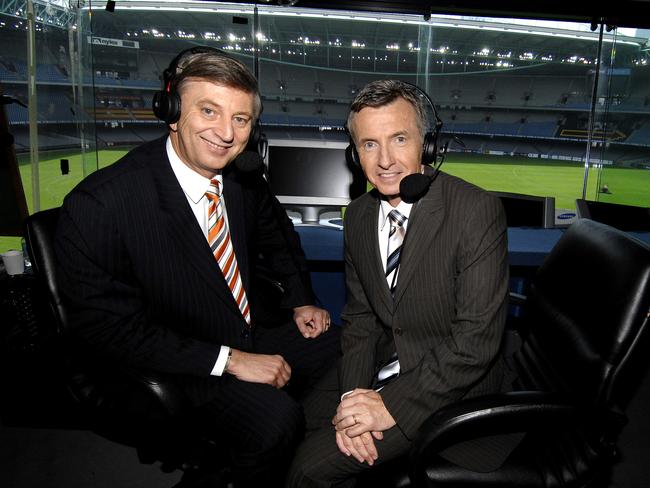
The Dennis Cometti story began on March 26, 1949, born the only child of a father with Italian heritage who worked in aviation instruction and a mum with English roots. That maternal side would be highlighted with revealing effect when Cometti appeared on the first Australian series of the SBS show, Who Do You Think You Are?
His dad’s heritage threw up no skeletons but mum’s side was an entirely different matter, her close family relationship with three convicts being the least of the problems when it emerged her great-grandmother may have been involved in the sudden deaths of two of her husbands.
“The family doesn’t like to go on about this. The only time I have ever taken exception to social media or the internet was my Wikipedia listing — and please don’t think I read it too often — but it had been highlighted to me that my great-great-grandmother had been described as a mass murderer.
“I took exception to that. Serial killer, maybe, but mass murderer is war crimes stuff so I complained to Wikipedia, which is a hard phone call to make,” he said.
“Seriously, it didn’t worry me. It’s a bit hard to hold me responsible for that. It didn’t worry me and I didn’t feel in any way responsible.”
His actual childhood was typical enough for the era, involving as much sport as possible, which in Cometti’s case saw him emerge as a promising tall forward with West Perth, or the Falcons as they are known. His first senior coach was former Footscray star Bob Spargo.
Recalls Spargo from his Gold Coast home: “That was my last year as coach of West Perth, 1967, and our senior full-forward was injured.
“I had seen Dennis playing in the juniors and he was always around the place so we knew him. He kicked four goals in his first senior game, which didn’t surprise me as Dennis was a darn good player.
“He was a respectful kid, and just a few months back when I had my 75th birthday Dennis rang up, which is typical of him.”
In his West Perth period, which lasted only 40 games from 1967-69, Cometti played against a loudmouthed rival from down the road at East Perth named Mal Brown, or “the most unpredictable person I have met in football”, as Cometti describes him.
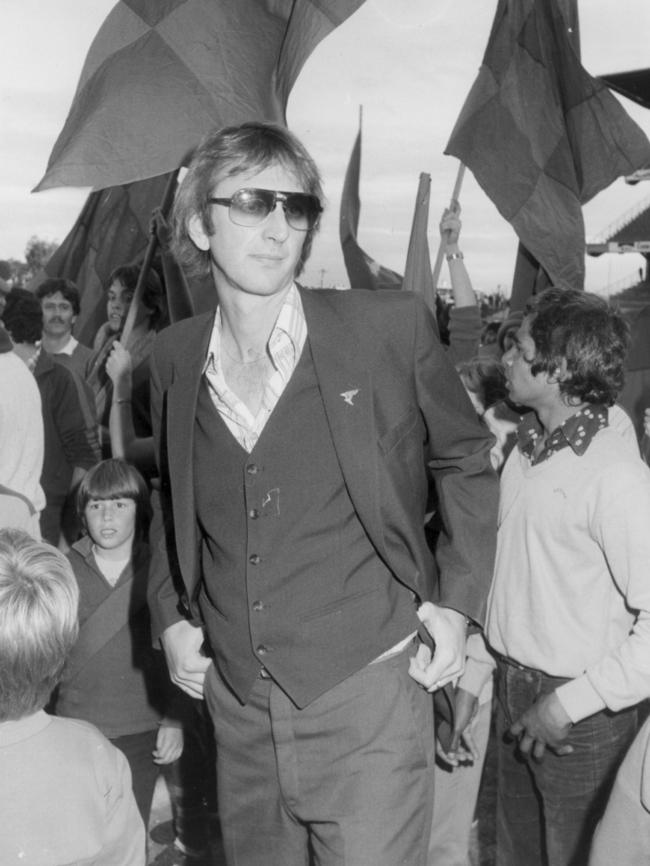
Brown said this week: “Dennis Cometti played for West Perth, or the Garlic Munchers as we knew them. He was a tall, skilled forward who could take a good mark and was a pretty good kick, a bit like David Hale from Hawthorn. But he was a bit out of place at West Perth because he didn’t have the killer instinct that some of them had.
“I don’t think Dennis liked me very much because he is a very politically correct person, and it’s fair to say I’m not. But over the years we have mellowed towards each other. As a caller, with his voice, knowledge of the game and one-liners, he has set the bar very high.
“If I had to mark him out of 10, I would give him a 9 because nobody gets a 10. He is unique, like Mike Williamson, Lou Richards or Bruce McAvaney. But it’s very hard to have to say such nice things about a Garlic Muncher.”
The golden voice would ultimately come between Cometti and football, even after he kicked 60 goals for the Falcons in 1968 under the ever-encouraging coaching of Graham “Polly” Farmer.
“All I wanted to be was a disc jockey. I would send away to the US and pay for reel-to-reel tapes that would take two months to arrive. That’s the reason I sounded like a disc jockey from Cincinatti,” Cometti laughed.
“My voice was there from the start and I’ve been lucky not to have problems with my throat, unlike a couple of mates who are race callers, but footy is very demanding on the voice.”
In 1970 Cometti moved to Melbourne to join 3DB in the old Herald and Weekly Times building in Flinders St. He trained with Footscray and played a few reserves games but his heart was in radio, and on his return to Perth came that fateful call from Ian Major.
Reality says that Cometti’s talent would have seen him enter the world of sports broadcasting irrespective of who picked up that phone at 6KY. Certainly for Australian sporting fans it’s hard to imagine the football, or Olympics, without Cometti. Indeed it was the Atlanta Olympics of 1996 where he believes he reached his peak.
“I was calling OK around the Atlanta Olympics. I was the right age, my confidence was solid and at that time I probably broadcast as well as I could,” Cometti explained.
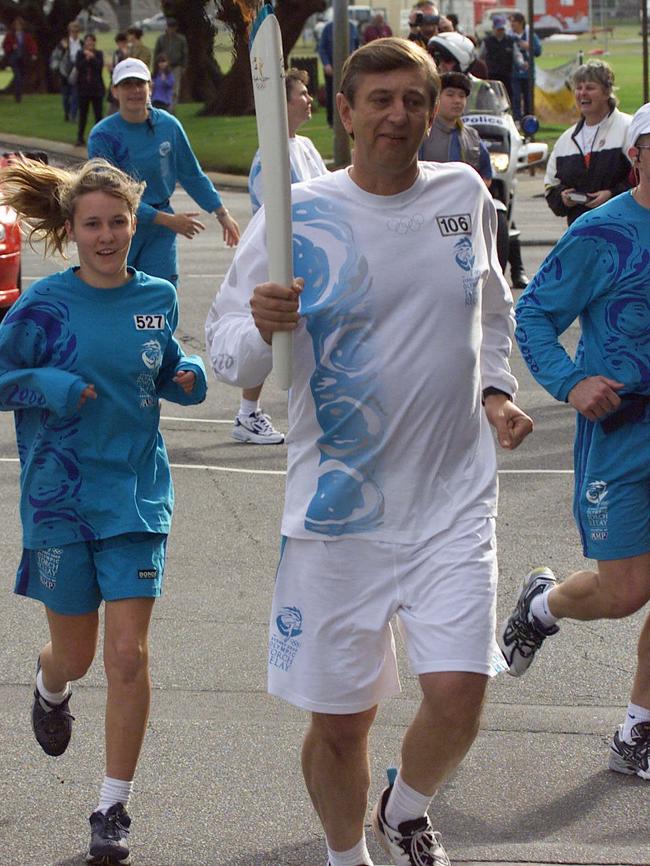
“I recall Susie O’Neill winning a butterfly event. I can’t remember exactly which distance (200m) because with me when it’s gone, it’s gone.
“When you are calling a race like that you know the country is listening and you can be judged harshly because they have such a vested interest. I came up with a line for Susie O’Neill if she won and, as you know, not all of it is spontaneous.
“As she started to pull away I said she ‘was the heart of a lion in the heart of Dixie’. But then you start thinking, ‘Will I use it or not because if I stuff this up, she’s going to win and my stuff-up will be on record. And my kids will be embarrassed by it’. There is a lot of confidence required in the profession.”
Cometti had that confidence after he had returned to West Perth as coach for a three-year stint from 1982-84, taking his beloved Falcons to third in 1982 and fifth in both 1983 and 1984: “I had been involved closely in the sport I was commentating on.
“The further you get away from those active involvements, the less confidence you have in your own opinion and the more you have to work. Some little self-doubts might creep in. I’m not saying I’m wracked with self-doubt, but there are always some there.”
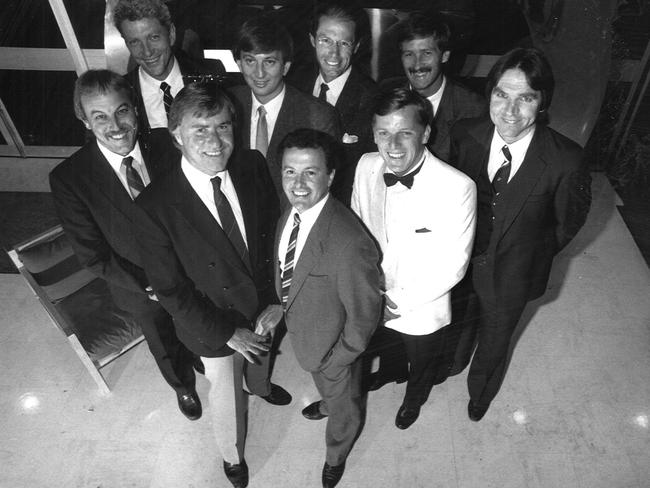
What sort of coach was he? Peter Menaglio remains a West Perth legend after 236 games and three best-and-fairests from 1977-89, seasons that included Cometti’s three-year coaching stint.
“He had the respect of all of the players at West Perth and his coaching methods were quite progressive, ahead of their time. He implemented drills that were picked up on years later,” Menaglio said.
“He tried to surround himself with good people but in the end, even though he took us to a preliminary final in his first year, he just didn’t have enough quality players.
“There is no doubt he has a very good football brain, which when coupled with a commanding voice has helped him become the great commentator he is.”
As Cometti would be the first to suggest, his standing as a commentator comes down to personal taste. One unabashed admirer is long-time contemporary Rex Hunt.
“I call him Mr Silk for he is one of the all-time greats if you judge football calling on entertainment, accuracy and excitement. The word that comes to my mind is passion,” Hunt said.
“It was a personal highlight to work alongside him at 3AW after the tragic loss of Clinton Grybas. Dennis clearly belongs in the top echelon along with a man like Ian Major, who doesn’t get enough kudos. Geoff Leek was another I would put in that bracket and definitely Harry Beitzel, while Clinton Grybas would have left everyone in his wake.”
Cometti is often asked for advice from aspiring commentators and comes back to the same factor — be yourself. He receives tapes and just about every single one contains parts of well-known callers, some in the McAvaney style, others with pieces of Hunt or even Cometti himself.
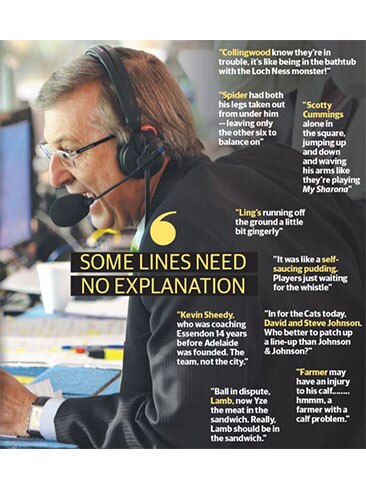
As for the game today, he prefers not to criticise a sport that has been very good to him although he clearly enjoyed the game as a spectacle in the 1990s.
“Is footy today the best? Put it this way, two years ago I was asked who I would pay to watch in today’s game. From memory I named Franklin, Ablett, Fyfe, Pendlebury and Stevie J.
“Then I went back 20 seasons to the opening round of 1994. Matthew Richardson kicked eight goals, Jason Dunstall got nine and in the same game Plugger Lockett kicked 5.5, Gary Ablett was somehow held to two, Allen Jakovich booted eight, Garry Lyon kicked five and Peter Sumich kicked six.
“On the Sunday Tony Modra snagged 13, Stephen Kernahan was injured and Wayne Carey had a bye. Where the game is today is a response to what those blokes were doing.
“I think there were also more characters in the game back then, like my favourites in Clive Waterhouse and Nathan Bassett.
“These days some try to be characters and it doesn’t work,” he maintains.
Expect Cometti to slip quietly into the background in retirement with his wife of 46 years, Veila.
They have a daughter, Ricki, 36, and a son, Mark, 32, who wrestles in the US under the name Outback Silvaback.
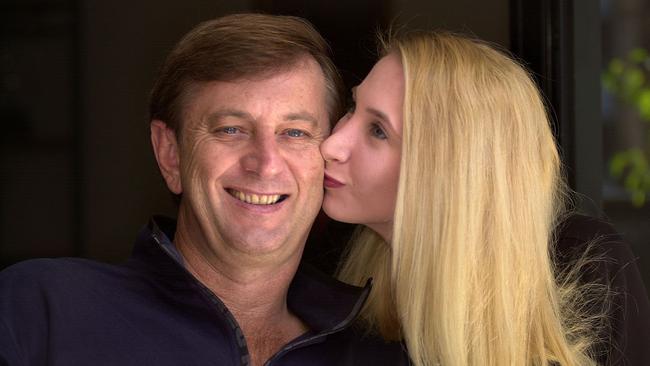
He will continue to read voraciously — his favourites being any theory on the Kennedy assassinations — between watching a few games involving West Perth in the WAFL. Plus trying to work out how to respond when the continuous cars drive past and someone yells “centimetre perfect!” or “that’s ambitious!”.
Because for all the adeptness he has shown in the commentary box, he has never worked out an appropriate response to his two most famous calls.


